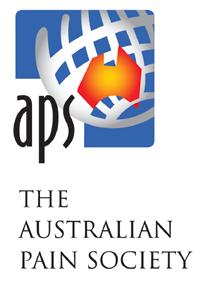Australian Pain Society Newsletter



The 43rd Annual Scientific Meeting (ASM) is about to kick off from 2 - 5 April in Canberra. Don’t panic, you can still go, the countdown is on, and now we are in the last days to register. Better late than never. If you are stuck with what to do with the action-packed program, don’t stress- there is a ‘to-do’ list on the conference app we can all download. So choose your social functions, do a preconference workshop and book your gala dinner tickets.
Looking forward to seeing all the action from the conference on twitter, the hashtag to use is #AusPainSoc.
While delegates are traveling to the conference, why not check out the latest publications and reflect on the findings about pain discourse. Starting with the systematic review by Gleadhill et al (2023), this is an interesting read on how there is a misalignment and mixed messages present within observational research on spinal pain and osteoarthritis. They identified that more than 6 in 10 observational studies may be uninterpretable due to the study intent and interpretations not having alignment. While the importance of the choice of language cannot be overstated, the presence or absence of words also has important ramifications as identified in the study by Atee et al (2023) and their text mining study on the use of the word pain in the Australian Royal Commission into Aged Care Quality and Safety. Whilst they identified the presence of the word pain
throughout the report, it is concerning for us all when it is notably absent from the final recommendations. Words are important, and O’Hagan et al (2023) brings this home to us in their paper on person centred education and advice for people with low back pain. They identify the requirement to have a positive attitude towards the messages about causes of low back pain rather than messages about how physical activity can be a predictor of intention to self-manage low back pain.
We also have a couple of great book reviews on chronic pain for you all to check out. We have Dr Arno Ebner to thank for undertaking a review on The chronic pain and illness workbook for teens and The Pain Management Workbook (both by Dr Rachel Zoffness). Both books certainly do look like an interesting read.
After you have read these papers, start to think about your own papers/publications/quality improvement projects and make a reminder to start sending them on for inclusion into the next APS newsletter.
Now that we are all pumped for the conference, and have explored the recent publications, why not consider putting in an application into the HCF GP scholarship round?
Have a great time at the conference everyone.
Kind regards
Dr Joanne Harmon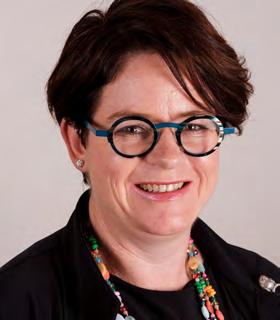
It is with pleasure that I provide this Presidents report for 2022-2023 and I hope this finds you and yours happy and well.
I will provide an update on Board and Society activity, farewell retiring members and welcome new faces to the Board and expand upon our progress in regard to our strategic plan.
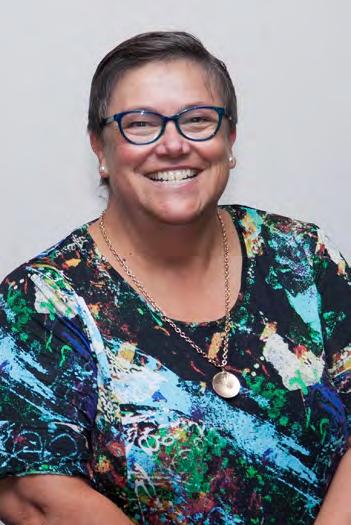
The COVID -19 pandemic continues to impact upon our professional and personal lives, but we were delighted to return to a face-to-face conference format in Hobart, 2022. Our Society was one of the first to return to a face-to-face format and, whilst we all acknowledged and accepted the risk of attending in person, for some that fear was realised with them contracting COVID 19. Despite this, the feedback from attendees and our international speakers was overwhelmingly positive and we look forward to seeing you all in Canberra for our 43rd Annual Scientific Meeting (ASM) in two short weeks. This past year has seen some movement in Board representation with the stepping down of Dr Rav Harish from the Northern Territory with Adjunct Associate Professor Cindy Wall stepping into the role of NT Director. Cindy has already noted that one shouldn’t miss any meetings because you may well be given a job but has accepted the roles with good grace and humour. Dr Tim Ho has taken a well-deserved break and stepped down as NSW State Director after five years of valuable service to the Society and Board and we wish him the very best and offer him our sincere thanks. At this meeting we will say farewell to Dr Michelle Harris, our South Australian Director who has completed her second term on the Board and I’m delighted that Michelle will be presenting a plenary session at our ASM, a recognition of some of the fine clinical work Michelle provides. Bernadette Smith will step up from Tasmanian State Director to the role of President-Elect with Joyce McSwan moving to the President role. Dr Laura Prendergast ably continues in the role of Treasurer as does Mrs Dinah Spratt in the role of Secretary. We welcome Connor Gleadhill to the role of NSW Director and will shortly vote on the nominations for Heather Gray for South Australia and Sinan Tejani for Tasmania.
I will move to the ex-officio role of Immediate Past President and Associate Professor Anne Burke will step down after 12 years on the Board. The realisation that Anne’s youngest son Cam started school when she came onto the board and is now in year 12 makes us all feel somewhat aged but demonstrates Anne’s dedication and commitment, not to mention her juggling and organisational skills. A heartfelt thanks to all of our board and a hearty welcome to our new members. Please remember and acknowledge that your Board volunteer their time to the Society whilst juggling clinical, research and academic roles, not to mention family and other commitments and responsibilities. Thank you all.
The major priority areas for the Society continue to be membership, research, education and innovation, services and resources, good governance and operations and advocacy. Our Society is our membership, and we are constantly looking at ways we can improve member benefits, attract new members and to maintain and grow our membership base. We have more students than ever registered for the Canberra ASM and we look forward to them joining as full members when their awards are conferred. We are implementing a mentorship program this year to provide support and encouragement for new clinicians and researchers as well as for more experienced members who may be interested in undertaking new or different roles. This will assist with succession planning in not only our workplaces but also within the society itself. The Scientific Program Committee have long fostered a culture of inclusion and innovation and with a dedicated early career / scholar position on the committee itself and by including others in ASM roles and activities. The Basic Pain Research Special Interest Group (BPR SIG) have introduced activities to support basic pain researchers including the “Three Minute Thesis” to develop presentation skills and to have questions answered in a supportive environment, painSTAR is aimed at developing our early and mid-career researchers and we provide support for board members via our ex officio roles and internal processes. We have recently undertaken
a membership survey and are thrilled to have our best ever return rate of 25%. These results are currently being analysed and will play a key role in the development of our next strategic plan. Thank you to all members who took the time to respond to that survey and congratulations to the two Gala Dinner ticket winners!
The APS proudly continues our tradition of supporting PhD scholars with Emily Moore chosen from a competitive field of applicants as our 6th PhD scholar. We continue our association with Cops for Kids and sincerely thank them for their ongoing support of clinical researchers in the field of paediatric pain. Dr Sarah Wallwork, recipient of CFK grant number 5, will present her research in Plenary 6 in Canberra. Dr Carolyn Berryman is the recipient of CFK grant number 6. We look forward to hearing the results from these studies and their future projects.
As many of you know, the APS was the first group to examine wait times and staffing levels in pain services. A second survey has been attended and a staffing paper has been prepared and submitted for publication, thanks to ongoing efforts of Associate Professor Anne Burke, Professor Tasha Stanton, Erin MacIntyre, and Dr Felicity Braithwaite. We have also shared our WIP questionnaires with our New Zealand Pain Society neighbours and they are examining waiting times across the ditch. The APS has committed to completing a third waiting in pain survey and associated staffing paper with a view to including more paediatric services and this will commence in the near future.
We are also pleased to be actively involved in the formation of the Australian Pain Solutions Research Alliance Steering Committee under the leadership of Professor Mark Hutchison with colleagues from around Australia. Key stakeholders from the university sector, government, professional bodies including the Australian and New Zealand College of Anaesthetists and Faculty of Pain Medicine, advocacy and lived experience groups including Painaustralia and Chronic Pain Australia and many more are included in this group and reinforces the desire and need for the pain sector to work together to achieve our objectives. As I mentioned in my recent newsletter report, Australian pain researchers and clinicians are well recognised and respected nationally and on the world stage – we all have a responsibility to promote and foster that work.
From an education and innovation perspective, our major educational offerings are our preconference workshops and the annual scientific meeting, PhD scholarships and clinical research grants, painSTAR and involvement in national education consortia and projects. We have developed our older person in pain multidisciplinary pain management education videos which members may access free of charge via our website and after the ASM, our BPR SIG Pain Hours will recommence. The team from OneThing podcasts continue to develop and provide this fantastic initiative and they will be available for you to speak with throughout the ASM – please make yourself known to them and offer your One Thing you would advise or tell a client, a colleague or a friend about pain. Thanks go to Josh Pate, David Kennedy, Lincoln Tracy, Aiden Cashin, Dan Harvie, Hayley Leake and Amelia Mardon for bringing this educational innovation to life. Our superb Newsletter team of Lincoln Tracy, Joanne Harmon, Kylie Dark and Tracy Hallen continually produce a quality document and our colleagues from the Pain in Childhood Special Interest Group are regular contributors of interesting articles. Keep an eye out for the IASP Global Year articles written by members of the education and innovation committee throughout the year. It is also pleasing to see the regular stream of “Recent Publications” submitted by our talented membership.
The inaugural painSTAR (Pain School for Translation And Research) was held at the Novotel Barossa Valley in November last year and was a resounding success. This education initiative, supported by the APS, IASP, ANZCA / FPM, APRA and the Australian Rheumatology Association, had previously been deferred due to the pandemic but it was well worth the wait. Anne Burke and the faculty of Rainer Haberberger, Ernie Jennings, Wendy Imlach and Christine Barry saw the project through from conception to delivery. Feedback from participants indicates that this is a strong model which offers significant benefits for delegates and has the potential to assist and influence future pain researchers. All speakers were well received, and two presenters, Amy Reynolds and Peter Rudland, gave the important voice of the lived experience of pain which was highly rated by attendees. A couple of snippets of feedback are as follows:
“I came away feeling inspired and energised (despite being very tired!). It felt like we were being
welcomed with open arms by a bunch of really great senior researchers and encouraged to build a vision for our own futures.
“The opportunity for interaction was hands down my favourite part of painSTAR. Having such a small group of delegates meant you got to spend a lot of time with everyone. This includes the keynotes and faculty who were more than generous with their time.”
“Just a quick note to say thank you for your vision and commitment, hard work and ceaseless enthusiasm to bring painSTAR to life. It was packed full of goodies and provided dawn to dusk (and beyond) opportunities to mix with a tremendous group of people and open our eyes to better ways of doing things and the big issues. This was a strong opening gambit! May painSTAR continue from strength to strength.”
The APS Board has committed to repeating painSTAR in November 2024, and I encourage you to support this initiative wholeheartedly.
The Scientific Program Committee, ably lead by Professor Kevin Keay, continues to be a dynamic and active group, committed to providing a diverse and interesting annual scientific meeting each year. Ideas, suggestions and queries are encouraged, freely given and challenges dealt with quickly and efficiently. We have a mix of disciplines and backgrounds represented on the SPC as is fitting for such a multidisciplinary Society. Mentorship is provided to early and mid-career researchers and clinicians not only on the SPC but throughout our ASM as well. Special thanks must go to Alex Robertson, Conference Manager extraordinaire from DCC&A for her enthusiasm, hard work and commitment. Thanks, Alex, for all you have done and all you continue to do for us.
Over the past two years a lot of background work has been done to help future board members by reviewing, updating and documenting internal policies, procedures and our bylaws. This boring stuff will streamline processes, ensure consistency and fairness in our practice and future decision making and strengthen our already transparent processes and activities. Thanks so much to Laura Prendergast, Tracy Hallen, Kylie Dark and all of the board members involved in reviewing these sometimes dry but vital processes.
Our governance and operations are maintained to an extremely high standard by our invaluable
Executive Officer Tracy Hallen, Admin/Project Officer Kylie Dark, our financial gurus Sunny Sun and Sandhya Gokani from DCC&A, our conference team of Alex Robertson and Jo Robinson and many other members of the DCC&A team and, of course, Dianna Crebbin herself. The corporate and conference knowledge of these ladies keeps us in good stead and is of great assistance to incoming presidents and board members. My deepest gratitude goes especially to Tracy for all of her help and guidance over my time on the board and certainly whilst in the “big chair” – thanks Trace, I couldn’t have done it without you.
The APS continues to advocate for our patients, their families and our members. We have had valuable input by members of our Relationships Committee into some of those submissions and I thank them for their enthusiasm and input. We have made submissions on a wide range of topics including pain in the disability sector and the NDIS, end of life cares, aged care clinical care standards, disability support pension impairment tables, the management of juvenile arthritis, on-site pharmacists in aged care facilities, the Royal Commission into Defence and Veteran Suicide, the aged care industry, the Australian Commission on Safety and Quality in Health Care low back pain standard and participated in technical expert advisory groups on aged care and musculoskeletal health, in pain networks and we continue to push for improved allied health funding for pain management.
I commend to you the members of the Board, our Newsletter team, our Scientific Program Committee team and our painSTAR team. The work that these passionate volunteers provide to the Society cannot and must not be underestimated. I invite you all to take an active role in the Society and to encourage your colleagues to join us in our purpose to advance pain management through education, research and advocacy for transformational improvements in clinical care.
I thank you for the privilege to be your President and I know you will support Joyce and the Board in their future endeavours.
Cheers TrudyAlready registered for APS 2023? We can’t wait to see you soon!
We’ve put together a conference to-do list to make sure you’re fully prepared for the event of the year.
See how many boxes you can tick before arriving at the National Convention Centre Canberra. Don’t forget to…
Download the Conference App (pin code to access theAPS 2023 app has been sent to registered delegates)

Pay all outstanding balances or call the APS Secretariat at +61 2 9954 4400 if you wish to pay over the phone.
Choose your social functions
Choose a pre-conference workshop
Start using the hashtag #AusPainSoc
Book your Gala Dinner tickets
Read the General Information (information has been sent to registered delegates)
If you’re presenting or have a poster at the APS 2023, make sure you’ve ticked these boxes too…
Save presentation onto USB and visit the Speaker Prep room at least ONE HOUR before your presentation

Print a hard-copy poster and submit your digital poster (Poster Presentation Guidelines)
Review the additional guidelines for any extra tips or tricks (Free Paper Presentation Guidelines)

We look forward to welcoming you to Canberra. Should you have queries, please contact the Conference Secretariat.

Don’t miss out! Last days to register.
You’ll enjoy an extensive program including pre-conference workshops, international keynote speakers, national speakers and topical sessions.
Join the many other professionals that are involved with pain and pain management and learn with clinicians and researchers across many different aspects of pain management. Leave the conference enabled to make that difference in your sphere of work.

Registrations will increase slightly from 30 March 2023. Register before 11.59PM AEDT Wednesday 29 March to save $50 on your registration.
Plan your conference experience today.
Program Overview
Keynote Speakers
Pre-Conference Workshops
Plenary Session Summary
Pain in the Media
Trainee Session
Social Program Discipline Sub-Group Meetings
For further information please visit the conference website.
Should you have any queries about the conference, please contact the Conference Secretariat.
We look forward to welcoming you to Canberra, ACT!
There’s an exciting social program available to delegates with multiple opportunities to meet and connect with peers and build upon professional networks.
The Conference Secretariat cannot confirm availability of social tickets once onsite –confirm your spot and book today!
Sunday 02 April
Welcome Reception
Exhibition Hall, NCCC
Time: 6.00pm – 7.30pm
Cost: Included in registration fee for full delegates
Join us for a first look at the exhibition hall and a chance to catch up with colleagues and delegates you haven’t seen since Hobart!
Basic Pain Research & Pain in Childhood SIG Dinners
Briscola Italian
Time: From 7.45pm
Cost: $90 per person, guests welcome
Locals will know Briscola, and out-of-towners will welcome the chance to enjoy some of the most authentic Italian food Canberra has to offer. Enjoy a shared feast of wholesome, and traditional Italian food, - just make sure you leave room for dessert.

Enjoy a few drinks with friends and colleagues interested in Basic Pain Research and Pain in Childhood. Delegates don’t have to be a member of the SIGs to join, everyone is welcome.
Monday 03 April
Social Activity
Our Place on London, 197 London Circuit Time: From 5.30pm Cost: Delegates will receive a complimentary drink card in their registration pack, no reservation is required.
Tucked into The Sebel, consider Our Place on London your home away from home while you’re in Canberra. A cocktail and coffee bar that focuses on high quality, ethically sourced products, they provide a safe and fun space full of the best vibes and good times no matter what the occasion is!
Enjoy a complimentary selection of Malfy Gin and Tonic or homemade Sangria at the end of the first day of conference. Stay on and share a meal with colleagues or new friends.
Monday 03 April & Tuesday 04 April
Stay Active with Andrew!
Departing The Sebel Foyer at 7.00am sharp on Monday 03 April and Tuesday 04 April
Join the Local Organising Committee Chair and ACT Board Member, Dr Andrew Watson for some crisp, fresh Canberra air! Open to runners AND walkers, join us for a 40-minute circuit around Lake Burley Griffith.

Registrations not required, just turn up and don’t forget your sneakers!
Tuesday 04 April
Gala Dinner Ballroom, NCCC
Time: 7.00pm – 11.00pm
Cost: $150 per person, guests welcome
Known as the Gala Dinner to beat all Gala Dinners, join us for a three-course meal and drinks - with plenty of time for dancing (of course!). The Gala Dinner is always considered a highlight of the conference, don’t miss out!
Wednesday 05 April
Wine Tasting: Mount Majura Vineyard Mount Majura Vineyard
Time: 1.00pm – 3.30pm
Cost: $50 per person, includes coach transfers to and from the vineyard. Guests welcome (over 18 only), tickets are limited.
For those with some free time after the conference, join us on a trip to Mount Majura Vineyard. The seated wine tasting includes a range of wines accompanied by a small individual produce platter. A delightful way to finish off your APS 2023 experience.
For full details on the APS 2023 social program, visit the conference website
Secure your place at these enjoyable and entertaining social functions by registering today!
Should you have any queries about the conference, please contact the Conference Secretariat.
2023 AUSTRALIAN PAIN SOCIETY
43RD ANNUAL SCIENTIFIC MEETING
In the IASP Global Year for Integrative Pain Care
8.30am – 12.30pm, Sunday 2 April 2023
National Convention Centre Canberra, ACT
Registration Fees starting from $160
Workshop Overview
This workshop will explore the use of lignocaine infusions in acute and chronic pain conditions, discussion and findings from the recent RAPID study – looking at the effectiveness and adverse effects of medications used in palliative care and pain management.
Finally, enjoy a deep dive into chronic lower limb pain conditions in children and adolescents. Join researchers for an interactive session as they develop guidelines and priorities for this condition.
For further information, visit: www.dcconferences.com.au/aps2023
Questions? Please email us at apsasm@dcconferences.com.au
2023 AUSTRALIAN PAIN SOCIETY 43RD ANNUAL SCIENTIFIC MEETING
In the IASP Global Year for Integrative Pain Care
8.30am – 5.00pm, Sunday 2 April 2023
National Convention Centre Canberra, ACT
Registration Fees starting from $160
Workshop Overview
Join us in this broad-based workshop to suit all knowledge levels and a variety of specialist areas with a multi-disciplinary focus in the field of Acute Pain Management. The aim is to share information, evidence, and our experiences with a focus on a pragmatic approach to optimise our practice. Issues pertinent to today’s challenges will be presented with opportunities to discuss and propose solutions to our greatest problems. It will help update our core knowledge, as well as find ways to move forward in this constantly challenging ad vital area of medical care.
For further information, visit: www.dcconferences.com.au/aps2023
Questions? Please email us at apsasm@dcconferences.com.au
2023 AUSTRALIAN PAIN SOCIETY 43RD ANNUAL SCIENTIFIC MEETING




In the IASP Global Year for Integrative Pain Care
8.30am – 12.30pm, Sunday 2 April 2023
National Convention Centre Canberra, ACT
Registration Fees starting from $160
Workshop Overview
The Foundations of Pain pre-conference workshop is a succinct overview of the physiology, clinical assessment, and clinical management of pain. The workshop is aimed at the general practitioner, specialist, allied health clinician or psychologist looking for an introduction to, or update on, persistent pain management. This workshop is grounded in a biopsychosocial understanding of pain mechanisms and developing a mechanism-based approach to pain assessment and management. This workshop will compliment those with an interest in attending an afternoon session of pharmacology, acute pain or physiotherapy topics.
For further information, visit: www.dcconferences.com.au/aps2023
Questions? Please email us at apsasm@dcconferences.com.au
2023 AUSTRALIAN PAIN SOCIETY 43RD ANNUAL SCIENTIFIC MEETING
In the IASP Global Year for Integrative Pain Care
11.00am – 5.00pm, Sunday 2 April 2023
National Convention Centre Canberra, ACT
Registration Fees starting from $180
This workshop will showcase the latest in Australian basic pain research from early career and senior researchers, and provide a forum to discuss mechanisms of nociception and pain across all levels of investigation: from molecular and cellular analyses, to studies in animals and humans (pre-clinical or clinical).
The workshop is open to all interested in mechanisms of nociception and pain, including basic and clinical researchers, health professionals and students at all levels.
For further information, visit: www.dcconferences.com.au/aps2023
Questions? Please email us at apsasm@dcconferences.com.au
2023 AUSTRALIAN PAIN SOCIETY 43RD ANNUAL SCIENTIFIC MEETING
In the IASP Global Year for Integrative Pain Care
STRESSMODEX: CLINICAL APPLICATIONS & TRAINING
Workshop Overview
StressModex is an integrated psychological and exercise treatment approach targeting stress and pain after injury, and can be applied to all acute and chronic pain conditions.
This highly practical workshop will provide training in the specific skills involved in StressModex.
For further information, visit: www.dcconferences.com.au/aps2023
Questions? Please email us at apsasm@dcconferences.com.au
2023 AUSTRALIAN PAIN SOCIETY 43RD ANNUAL SCIENTIFIC MEETING



In the IASP Global Year for Integrative Pain Care
1.30pm – 5.00pm, Sunday 2 April 2023
National Convention Centre Canberra, ACT Registration Fees starting from $160

This interactive workshop embraces the IASP Global Year Campaign for Integrative Pain Care and pharmacology by exploring the role of analgesic adjuvants, including emerging possibilities through the use of unusual suspects such as low dose naltrexone and the NMDA effects of memantine. We will explore the complex interplay of genetic variation in pharmacokinetic and pharmacodynamic pathways affecting opioid efficacy, and discuss the challenges opioid weaning and appropriate strategies through opioid substitution. We will also take a fascinating look at how food can be medicine and where dietitians play a vital role in pain management and its application in clinical practice. There will be opportunities for questions and networking with peers, so that current evidence-based knowledge can be optimised and translated in everyday practice.
For further information, visit: www.dcconferences.com.au/aps2023
Questions? Please email us at apsasm@dcconferences.com.au
The Australian Pain Society (APS) Basic Pain Research Special Interest Group (BPR SIG) 2023 Annual General Meeting (AGM) will be held on Sunday 2 April 2023 from 3:30 - 4:00pm AEST at the National Convention Centre Canberra, ACT, during the BPR SIG Pre-Conference Workshop.
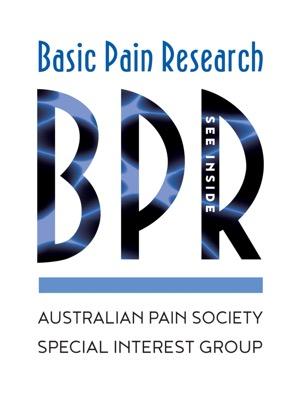
A General Business Meeting (GBM) will immediately follow the AGM.
Reminder: Only current APS BPR SIG members have the right to nominate and vote.
Formal notice of the APS Basic Pain Research SIG AGM along with the 2023 Agenda, Proxy form, and Minutes from the 2022 AGM and GBM have been distributed.
We hope to see our BPR SIG members there!
The Australian Pain Society (APS) Pain in Childhood Special Interest Group (PinC SIG) 2023 Annual General Meeting (AGM) will be held on Sunday 2 April 2023 from 12:0012:30pm AEST at the National Convention Centre Canberra, ACT, during the PinC Pre-Conference Workshop.
A General Business Meeting (GBM) will immediately follow the AGM.
Reminder: Only current APS PinC SIG members have the right to nominate and vote.
Formal notice of the APS Pain in Childhood SIG AGM along with the 2023 Agenda, Proxy form, and Minutes from the 2022 AGM and GBM have been distributed.
We hope to see our PinC SIG members there!
We are thrilled to confirm that Joyce McSwan is the new President for the Australian Pain Society.
Joyce was the Queensland Director for two years from 2019, following her time on the APS Relationships Committee as the Pharmaceutical Society of Australia representative. Joyce stepped into the role of President-Elect in 2021 and now President in 2023.
Joyce is a multi-award winning clinical pharmacist and educator within the field of pain management. She is the Clinical Director of the Gold Coast Primary Health Network ‘Turning Pain into Gain’ program and Managing Director of PainWISE. Her contributions in the field of persistent pain has been recognised through awards and collaborative industry partnerships with Griffith University, Bond University, Painaustralia, Australian Pain Society, the Pharmaceutical Society of Australia and the Pain Management Research Institute.
In 2021, Joyce was appointed the Principal Continuing Professional Development Director of the Australian Health Practitioners Advisory Solutions. She was awarded her Fellowship by the Pharmaceutical Society of Australia in 2021. Her expertise lies in innovative health pathway design, piloting and implementing models of care within the primary care setting utilising mixed funding models to optimise pain management and chronic disease management.
We welcome Joyce’s expertise and insight in her new role as President.
Ms Bernadette Smith President-ElectWe are delighted to confirm that Bernadette Smith is the new President-Elect for the APS.
Bernadette joined the APS Board in 2021 as the Director for Tasmania.
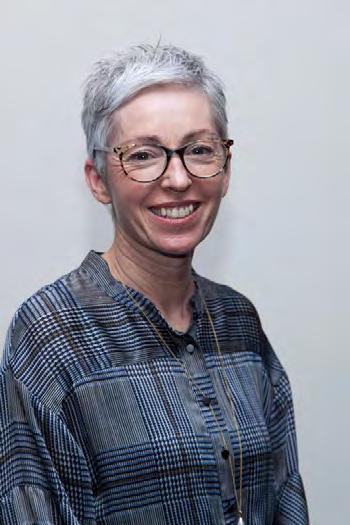
Graduating from UTAS in 1992 Bernadette spent the next 10 years working as a Psychologist for Community Mental Health Services in Tasmania (Child & Adolescent/Adult Community). Bernadette has also worked for UTAS as honorary clinical lecturer with the School of Psychology and Rural Clinical School at the Cradle Coast Campus.
Bernadette moved into private practice (Psychology Plus) in 2003 where she developed a special interest in the treatment of chronic pain and health education. In 2016, Bernadette completed her Master of Science in Medicine (Pain Management) through the University of Sydney. Aside from consulting in private practice Bernadette co-facilitates a federally funded Group Pain Management Program (OPAL) on the North West Coast of Tasmania and has done so for the past 8 years.
Bernadette is also co-director of Pain Solutions a multi-disciplinary team working with compensable patients suffering chronic pain.

Bernadette is a big supporter of the Pain Revolution; she rode for the first time in 2018 and is currently a mentor for local pain educators through the local pain education program.
We look forward to Bernadette’s continued contributions to the APS Board in her new role.
We would like to extend a warm welcome to our new President and President-Elect, and newly elected Board Members
We are happy to welcome Connor Gleadhill as the APS Director for NSW.
Connor is an Irish-Australian physiotherapist and researcher.
In his clinical work, Connor has established and run successful businesses and led a state-wide team of health professionals within the New South Wales Police Force.
In his research, Connor has established and leads a clinician-led physiotherapy research network in regional New South Wales. In this network, and other projects, Connor works with end-users of research (clinicians, consumers, and other stakeholders) to co-produce clinically relevant translational research.

Connor is passionate about making research more useful and leading changes in health systems to improve outcomes for patients with pain and chronic health conditions.
We are pleased to welcome Heather Gray as the APS Director for South Australia.

Graduating from Flinders University in 1994, Heather spent the first few years of her nursing career in ICU, bridged into perioperative nursing (PACU) before transitioning to the acute pain specialty. She has been the Nurse Unit Manager of the Acute Pain Service at the Royal Adelaide Hospital since 2015.
We are glad to welcome Sinan Tejani as the APS Director for Tasmania.
Sinan moved to Australia from Mumbai in 2015 to pursue a Master’s in Clinical Physiotherapy. Upon completing his Masters, he moved to Burnie, a regional city on the northwest coast of Tasmania. Living and working in Burnie exposed Sinan to the challenges regional communities face in receiving best practice care, especially when it comes to the management of persistent pain. To that end, he has been involved with Pain Revolution as a Local Pain Educator (LPE) and a mentor to other LPE’s.
Sinan is extremely passionate about improving the knowledge and standards of pain care amongst allied health professionals and strongly advocates for the recognition of social determinants of health in outcomes related to pain. Sinan currently works at InBalance, a multi-disciplinary allied health practice in Launceston, Tasmania. He is a co-writer and co-facilitator of Tame Your Pain, a Pain Management and Education program.
Sinan also works as a consultant and coach for BOOST Recovery, an online program for the management of persistent pain. He is currently pursuing his Master of Science in Medicine (Pain Management) from the University of Sydney.

We welcome Connor, Heather and Sinan, thank them for their commitment to the APS and look forward to working with them into the future.
Also congratulations to Cindy Wall and Andrew Watson on their re-elections as Directors for NT and ACT respectively.
We wish to sincerely thank Trudy Maunsell as she steps down from her role as APS President.
Trudy served as the Queensland Director for six years from 2013 before becoming President-Elect in 2019 and then President from 2021. She was successful in leading us through our first face to face conference in Hobart 2022 after the disappointment of two cancelled conferences during the COVID pandemic.
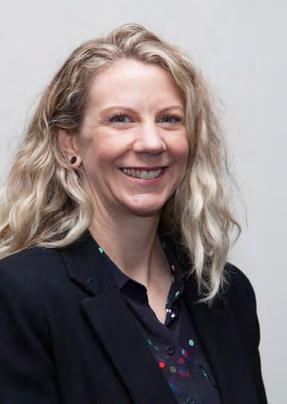
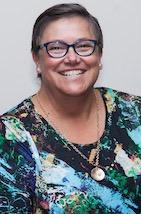
Trudy brought with her a broad range of clinical experience in rural, remote and metropolitan hospitals, both as a Registered Nurse and Midwife. Trudy became involved in pain management as a Clinical Nurse Consultant after becoming interested in pain whilst a Nursing Unit Manager of an acute surgical ward in a regional referral hospital.
Trudy’s interests in pain management included clinical care delivery, the establishment of outcome based key performance indicators for acute pain services and pain management education. Trudy also conducted several commissioned training programs for nursing staff in Hong Kong and Singapore.
We are grateful that we will continue to benefit from Trudy’s experience, insights and professionalism as she continues in an exofficio capacity as Immediate Past President to the APS Board.

Tim Ho has retired from the APS Board as the Director for New South Wales. Joining in 2018, Tim has served on the Board for five years.
Tim was a valuable contributor to the Board and always a keen and effective contributor to our advocacy submissions when asked to provide input.
We wish Tim all the best for the future!
Rav Harish has retired from the APS Board as the Director for the Northern Territory. Joining in 2021, Rav has served on the Board for three years and was also the Board Representative for the Basic Pain Research Special Interest Group.
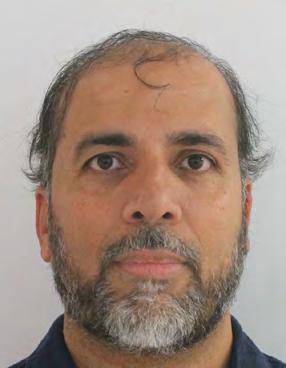
Rav brought with him an interest in addressing the challenges of pain issues in rural and remote Australia through collaborative research and developing initiatives and outreach programs.
We wish Rav all the best for the future!
Dr Michelle Harris has also retired from the APS Board as the Director for South Australia, having completed her maximum tenure of six years.
Michelle was always an active member of the Board and contributor to past & current Annual Scientific Meetings and we are delighted that she is our first speaker in the initial Plenary session in Canberra on Monday 2 April.
We wish Michelle continued success in the future!
The chronic pain & illness workbook for teens
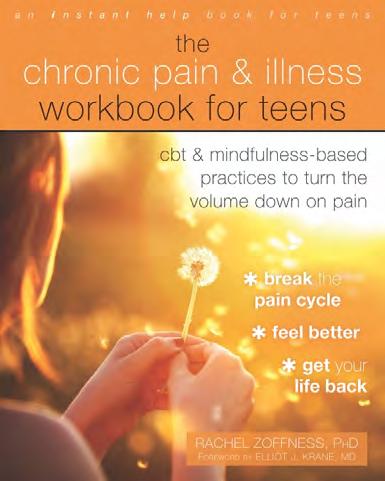 by Rachel Zoffness, PhD
by Rachel Zoffness, PhD
Date published: 2019
Publisher: New Harbinger Publications
ISBN: 978-1-68403-352-2
and The Pain Management Workbook
by Rachel Zoffness, PhDDate published: 2020
Publisher: New Harbinger Publications
ISBN: 978-1-68403-644-8
Reviewer
Dr Arno Ebner is a private Paediatrician working in his own practice in Cairns. He has developed a special interest and gained his experiences in paediatric pain while working in Child Oncology and Palliative Care during his six years in Wellington, New Zealand. When moving to Australia he continued to support young patients with chronic pain conditions and he became a member of the Australian Pain Society, and is currently the Communications Officer for the Pain in Childhood Special Interest Group.
About the author
Dr Rachel Zoffness is a clinical psychologist in the USA, with a focus on improving the life of children, adolescents and adults with chronic pain and illnesses. Not only does she work as a clinical psychologist, but she is also a passionate educator. Rachel is ensuring that knowledge is translated into practice, empowering patients, families and professionals through consultations, workshops, lectures, and her two books ‘The chronic pain & illness workbook for teens’ and ‘The Pain Management Workbook’. Dr Rachel Zoffness regularly writes the column ‘Pain Explained’ for ‘Psychology Today’. She has an excellent website ‘www.zoffness.com’ where one will find many useful resources and free video workshops for professionals and for patients alike.
About the books
Realising the lack of affordable and accessible resources for patients and health providers alike, Rachel decided to write the book ‘The
chronic pain & illness workbook for teens’ which is geared towards younger people with adolescent and child specific examples and language. ‘The Pain Management Workbook’ is an expanded version written for adults living with pain and the healthcare providers who treat them. Both books explain how chronic pain is not so much biomedical but rather biopsychosocial. The books aim to figure out a biopsychosocial patient’s pain recipe, and how to effectively treat the whole person rather than just a body part. The cognitive behavioural and mindfulness-based exercises in the books are science based, easy to practice and the reader will be given options to find the formula that works best for them taking control over the pain back.
While the books are fun to read, there is no chitchat. Rachel makes it clear to the reader that the book and the strategies discussed, will only work when the reader is working it.
As I tell the children and their parents during the consult, to be the boss of your pain you need to do the exercises as a daily sacred duty. Regular practice is not negotiable, but the tools are.
Rachel Zoffness suggests to her readers to think of these strategies as their daily pain medicine and for the best results, to use them every single day.
The aim of the book is precisely summarised in the foreword by Dr Elliot J Krane. It is not a diagnostic aid or a substitute for medical care but it ‘shows the way to begin the mastery of pain, to learn how to put it in its proper context and place, and when necessary, to coexist with it.’. Many well-known pain experts agree, Neil L Schechter, Lonnie Zeltzer and Tony M Palermo to name a few.
This book is written as a ‘self-help’ companion
‘The chronic pain & illness workbook for teens’
for older children from around teenage onwards. The message is brought across in a non-scientific language and deeply valuing the individual young person, that each patient is. Rachel Zoffness writes at the beginning ‘To the amazing teens who walk through my door showing bravery and determination in the face of pain. You are the reason I do what I do!’
It is an uncomplicated read of 155 pages. The whole layout is easy on the eye, written in larger fonts with comfortable wide margins, the text paragraphs are kept pleasingly short but clear and concise without compromising information. It goes well with the communication style of today’s children and adolescents. Each chapter ends with a conclusion summarising the key message of the text. Exercises and room for notes, own thoughts and reflections are interspersed frequently making it a true workbook.
The book is divided in 8 chapters:
1. Pain and Your Brain
What pain is, the physical and emotional component, the good and the bad side of pain, types of pain and how to retrain the brain’s pain response.
2. Emotions and Pain
The link between physical and emotional wellbeing, the effect of negative and positive emotions on pain and the effect of pain on emotions, and how to influence the circle of emotions and pain.
3. Strategies for Changing Pain
Coping with pain and illnesses, how to set up achievable goals, creating a plan and dealing with obstacles and setbacks.
4. Mind Body Skills
Head and body are connected, why mindbody techniques work, and how to do biofeedback, mindfulness, watch your breath, imagery, and other powerful tools.
5. Thoughts Affect Pain
Connecting the thoughts in the head with the sensations in the body, negative self-talk, listening to the pain voice (the inner bully).
6. Transform Thoughts to Transform Pain
Changing the pain voice, developing coping thoughts, use positive words and make your own voice more powerful than the pain voice.
7. Lifestyle Affects Pain
The importance of a well-balanced lifestyle, tips for sleep, fitness, nutrition, and a good social life.
8.
Practice makes perfect. Create a plan and follow it to become in charge of your pain. Every. Single. Day.
The book ends with a most important message, that the end of the book is in fact just the beginning. The beginning of a journey to a less stressful and less painful life.
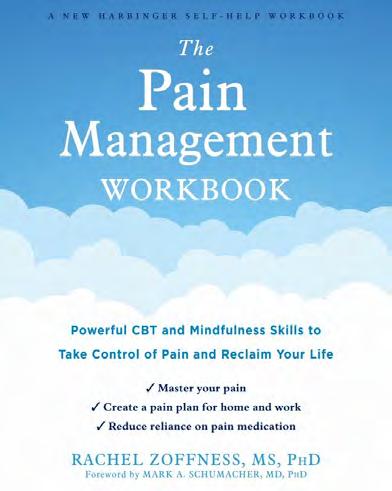
This book has the same goal like the workbook for teens but written for the adult person. It is as well designed a workbook, not just for reading about pain and providing education but guiding the pain patient towards actively participating and thinking about what they read and how to translate the knowledge into daily practice. The foreword by Mark A Schuhmacher underlines how important this is, ‘Progress comes not only from expert guidance but also from a narrative of self-directed care and self-compassion’.
Rachel Zoffness welcomes the readers to her book by reassuring them that the suffering from pain is not imagined but it is real, and it can be conquered.
The book is divided into 8 chapters:
1. Pain Science 101
The influencers of pain: the bio-, psycho- and social components explained.
2. CBT Basics: Triggers, Emotions, and Coping with Pain
Physical and mental health are always inextricably connected, 24/7. Emotions, thinking, lifestyle and the physical body constantly affect each other, and each will influence the other in either good or bad ways.
3. Pain-Control Strategies
Making stepwise positive changes to increase the strength and numbers of the positive influencers on the bio-psycho-social cycle.
4. Mind-Body Medicine
How to do the CBT and mindfulnessbased stress reduction (MBSR) exercises that are proven to work. In the toolbox: Diaphragmatic breathing, body scan, progressive muscle relaxation, biofeedback, positive imagery, mindfulness.
5. The Biological Connection Between Thoughts and Pain
How negative self-talk and thoughts increase pain and how to detect the harmful inner pain voice.
6. Cognitive Strategies: Pain and Your Brain
How to dial up the volume of the positive inner voice of wellness and mute the pain voice.
7. Lifestyle Tips for pain Management
The importance of a well-balanced lifestyle and to value healthy eating, sleep, physical activity, and spending time alone and spending time with friends and family.
8. Putting It All Together
A summary of chapter 1-7. Time to transfer knowledge into action and create the individual pain recipe. Tips how to make a pain plan, how to get into regular habits starting with getting out of bed in the morning and ensuring a healthy sleep hygiene in the evening.
The book ends with the same message as the ‘The chronic pain & illness workbook for teens’. The reader has arrived at the end of the workbook but at the beginning to a less stressful and less painful life.
As a personal note, I have both books in my consult room. I recommend ‘The chronic pain & illness workbook for teens’ to my teenage chronic pain patients. I know several who have bought it and provided feedback that they would highly recommend it. With chronic pain often running in families, I have also had quite a few parents who were very interested when they browsed through the pages of the ‘The Pain Management Workbook’.
Declaration
Dr Arno Ebner has nothing to declare.
Women in health can now apply for a leadership development scholarship from Women & Leadership Australia. Providing world-class leadership development programs for women at all stages of their careers, Women & Leadership Australia brings together the latest in leadership theory and practice with a focus on applied learning, building networks, and a flexible, part-time delivery to fit in with your schedule.
Scholarships are now available through Women & Leadership Australia to encourage more women to enhance their impact at work and beyond, and to support the development of women leaders at all levels.

Partial scholarships of $1,000-$5,000 will support participation in one of four courses designed for women in non-leadership roles through to senior leaders.
The deadline for applications has been extended to Friday 14 April 2023. Find out more here: https://www.wla.edu.au/industry/health
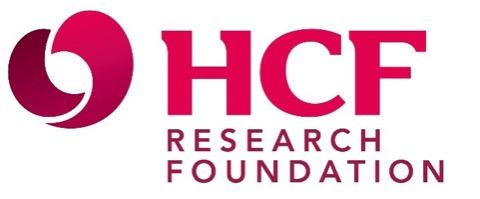
Applications for the 2023 RACGP Foundation/HCF Research Foundation Research Grant have now opened.
The HCF Research Foundation and the RACGP Foundation have established a research grant to fund research into health services issues of relevance to general practice. This grant has a health services research focus. The main goals of health services research are identifying the most effective ways to organise, manage, finance, and deliver high quality care; reducing medical errors; and improving patient safety. Research should lead to improved healthcare outcomes, including the quality, efficiency, equity of, and access to, health services.
To be eligible for the RACGP Foundation / HCF Research Foundation Research Grant, the principal investigator must be a general practitioner or general practice registrar. Please visit https://racgpfoundation.smartygrants.com.au/hcf2023 for more information.
Applications for this research grant will close on Monday 1 May 2023.

Thank you to APS members Edel O’Hagan, Aidan Cashin, James McAuley and their colleague Adrian Traeger, for sharing the following recent publication.
Article first published online: 22 December 2022
Journal Reference: ’Hagan ET, Cashin AG, Traeger AC, et al. Person-centred education and advice for people with low back pain: Making the best of what we know. Brazilian Journal of Physical Therapy 2023;27:100478.
DOI: 10.1016/j.bjpt.2022.100478
Abstract
Background
The first-line treatment consistently recommended for people with low back pain is patient education and advice. Regardless of the duration of low back pain, clinicians should provide education on the benign nature of low back pain, reassurance about the absence of a serious medical condition, and advice to remain active. There is little guidance on how best to provide this care.
Methods
This Masterclass will draw on recent evidence to explore how physical therapy clinicians could deliver person-centred education and advice to people with low back pain to refine their clinical consultation.
Results
First, we highlight the potential value of providing validation to acknowledge the distressing experience and consequences of low back pain. Second, we describe a tool to open channels of communication to provide education and advice in a patient-centred and efficient way. Clinicians could consider using the Attitude toward Education and advice for Low back pain
Questionnaire to gain an insight into patient attitudes toward education and advice at the outset of a clinical encounter. Finally, we provide options for tailoring patient education and advice to promote self-management of low back pain based on patient attitudes.
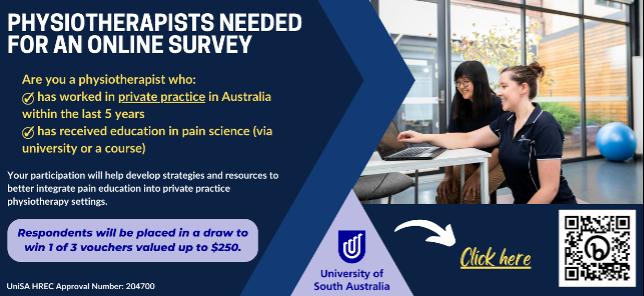
Conclusions
We present evidence that a positive attitude toward messages about causes rather than messages about physical activity predicts intention to self-manage low back pain. We combine this evidence to suggest a pathway for clinicians to provide education and advice to people with low back pain within the time constraints of a clinical consultation.
Declaration
Edel O’Hagan has nothing to declare.
Thank you to APS members Connor Gleadhill, Aidan Cashin, Harrison Hansford and their colleagues Steven Kamper, Adrian Traeger, Hopin Lee, Priscilla Viana Da Silva, Erin Nolan, Simon RE Davidson, Magdalene Wilcyznska, Emma Robson and Christopher Williams for sharing the following recent publication.
Article first published online: 1 February 2023
Journal Reference: Gleadhill C, Lee H, Kamper S, Cashin A, Hansford H, Traeger A, Viana Da Silva P, Nolan E, Davidson S, Wilczynska M, Robson E, Williams C. Mixed messages: Most spinal pain and osteoarthritis observational research is unclear or misaligned. Journal of Clinical Epidemiology. Journal of Clinical Epidemiology (In Press) 2023.
DOI: https://doi.org/10.1016/j.jclinepi.2023.01.005
Abstract
Objective
We assessed authors’ language and methods to determine alignment between reported aims, methods, intent, and interpretations in observational studies in spinal pain or osteoarthritis.
Design
Systematic review.
Methods
We searched five databases for observational studies that included people with spinal pain or osteoarthritis published in the last five years. We randomised 100 eligible studies, and classified study intent (aims and methods) and interpretations as causal, non-causal, unclear, or misaligned.
Overall, 38% of studies were aligned regarding their intent and interpretation (either causally (22%) or non-causally (16%)). 29% of studies’ aims and 29% of study methods were unclear. Intent was misaligned in 16% of studies (where aim differed to method) and 23% of studies had misaligned interpretations (where there were
multiple conflicting claims). The most common kind of aim was non-causal (38%), and the most common type of method (39%), intent (38%), and interpretations (35%) was causal.
Misalignment and mixed messages are common in observational research of spinal pain and osteoarthritis. More than 6 in 10 observational studies may be uninterpretable because study intent and interpretations do not align. While causal methods and intent are most common in observational research, authors commonly shroud causal intent in non-causal terminology.
• Researchers should align their stated aims, methods, and interpretations.
• Researchers should precisely express their aim in observational research.
• Researchers should clearly explain their rationale behind study design elements like enrolling a control group, or methods like covariate selection and confounding adjustment.
• Researchers should unambiguously interpret their results, in alignment with the intent of their study.
• End-users should beware that non-causal or ambiguous language is used to shroud causal intent in observational research.
CONNOR GLEADHILL (lead author) has nothing to declare.
Thank you to APS member Mustafa Atee and colleagues Matthew Andreotta, Rebecca Lloyd, Daniel Whiting, Marie Alford and Thomas Morris for sharing the following recent publication.
Article first published online: 9 February 2023
Authors: Mustafa Atee, Matthew Andreotta, Rebecca Lloyd, Daniel Whiting, Marie Alford, Thomas Morris
Journal Reference: Atee M, Andreotta M, Lloyd R, Whiting D, Alford M, Morris T. Does pain matter in the Australian Royal Commission into Aged Care Quality and Safety? A text mining study. Aging and Health Research. 2023;3(1):100126.
DOI: https://doi.org/10.1016/j.ahr.2023.100126
Abstract
Background
Pain is often poorly documented, assessed and managed in the Australian aged care sector. In 2018, the Australian Government called for the Royal Commission into Aged Care Quality and Safety (RC) to investigate the serious concerns, neglects and abuses including the inadequate pain management seen in the sector. This study examined the degree to which the RC discussed the issue of pain in their published reports and recommendations.
A text mining study with a computer-assisted term frequency analysis identified mentions of the word “pain” in the text of two key reports produced by the RC: the Interim Report and the Final Report. Main outcome measures included frequency of mentions of “pain”, cumulative percentile rank of the word “pain”, proportion of words that were “pain”, and frequency of mentions of the word “pain” in quotes.
The word “pain” was mentioned often in the Interim Report (n = 10, 0.03% of all words, 87th percentile) and the Final Report (n = 218, 0.05% of all words, 97th percentile). However, the word “pain” was absent from final recommendations of the RC.
Although the RC discussed pain in their reports, the topic was omitted from recommendations, reflecting a lack of attention to the presented evidence. This contradicts the ‘rights-based’ or egalitarian approach of the RC, that recommends a “new system for aged care should be rooted in the protection and promotion of the rights of the people who require support and care”. Without specific recommendations for pain management, a disconnection may arise between targeted polices, programs and funding schemes, and the clinical practice. Thus, older adults living in the community and residential aged care homes may remain vulnerable.
M Atee is one of the originators of the PainChek® instrument, which is marketed by PainChek Ltd. (ASX: PCK). He is also a shareholder of PainChek Ltd. He previously held the position of a Senior Research Scientist (October 2018 - May 2020) at PainChek Ltd. and is currently serving the position of Research and Practice Lead at The Dementia Centre, HammondCare. He had a granted patent titled “A pain assessment method and system; PCT/AU2015/000501” in Australia, China, Japan, and the U.S., which was assigned to PainChek Ltd. M Atee is also a member of the Australian Pain Society. Other authors declare no conflict of interest.
The Australian Pain Society (APS) is keen to share publications from our members with their colleagues via our eNewsletter. If you’ve had an article accepted or published recently, please contact our Assistant Editor Joanne Harmon via the APS Secretariat (aps@apsoc.org.au) with the title, authors, and reference (i.e., journal, volume, and DOI) of your article and request the submission template. We would love it if you also supply a short commentary (300 words max) to give our readers the gist of the article.
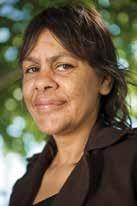
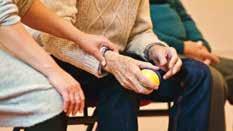
The gold standard in Pain Management for Older People is now available in eBook format!

In this edition:
Chapter 1: About Pain
Chapter 2: Identi cation and assessment of pain in aged care residents
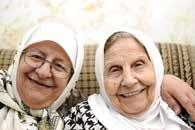
Chapter 3: Beyond medication: psychological and educational approaches to pain management
Chapter 4: Movement and physical activity
Chapter 5: Complementary approaches to pain
Chapter 6: Pharmacological treatments
Chapter 7: Dementia and cognitive impairment: special considerations
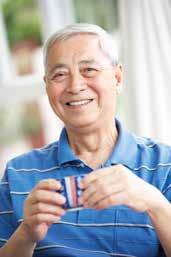
Chapter 8: Pain at the end of life
Chapter 9: Pain and nutrition
Chapter 10: Quality and systems issues
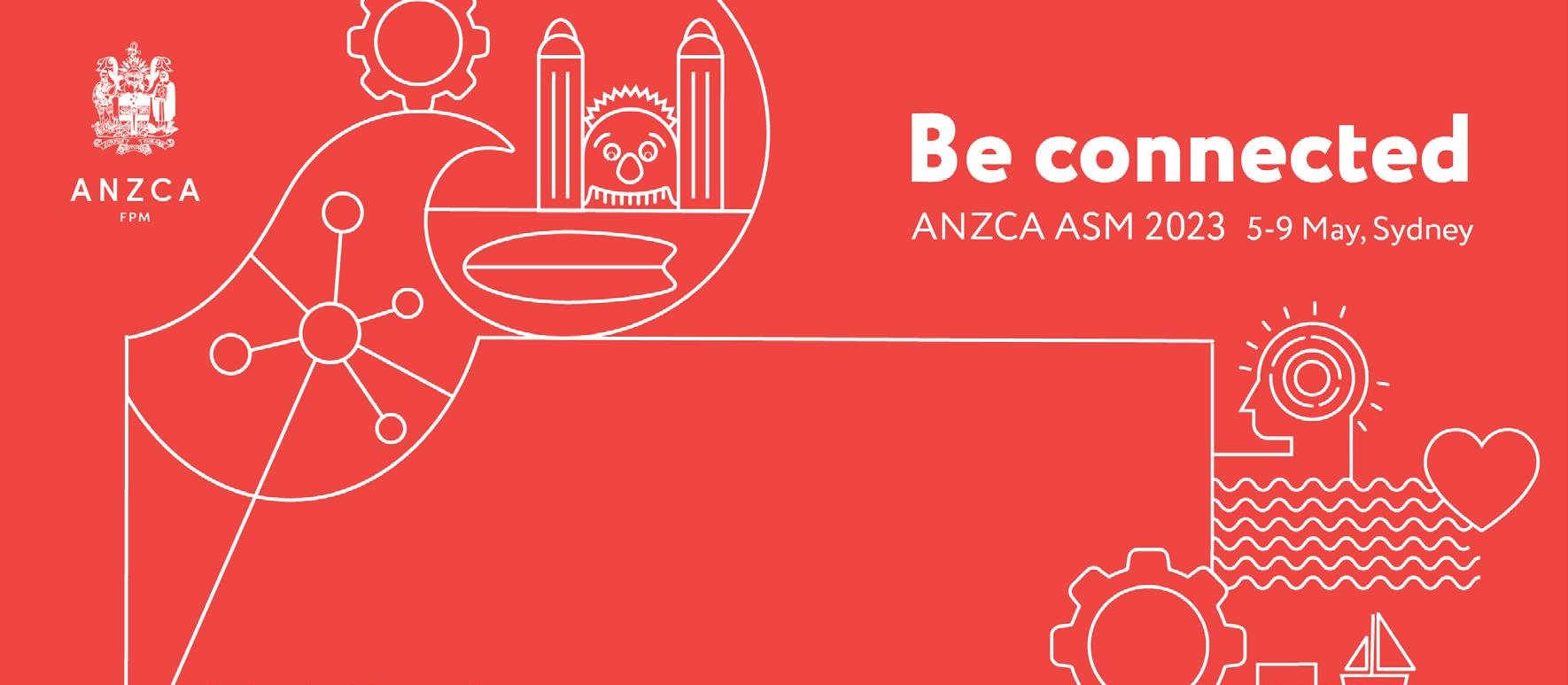
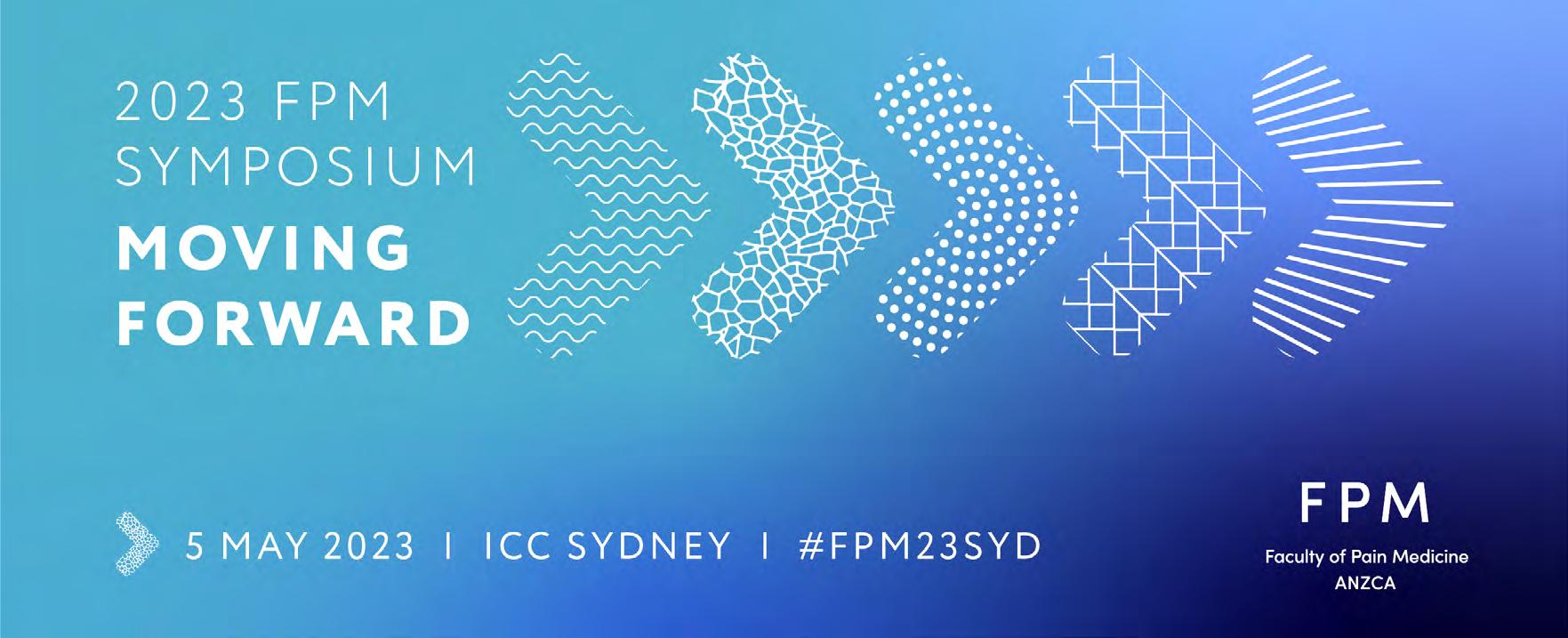
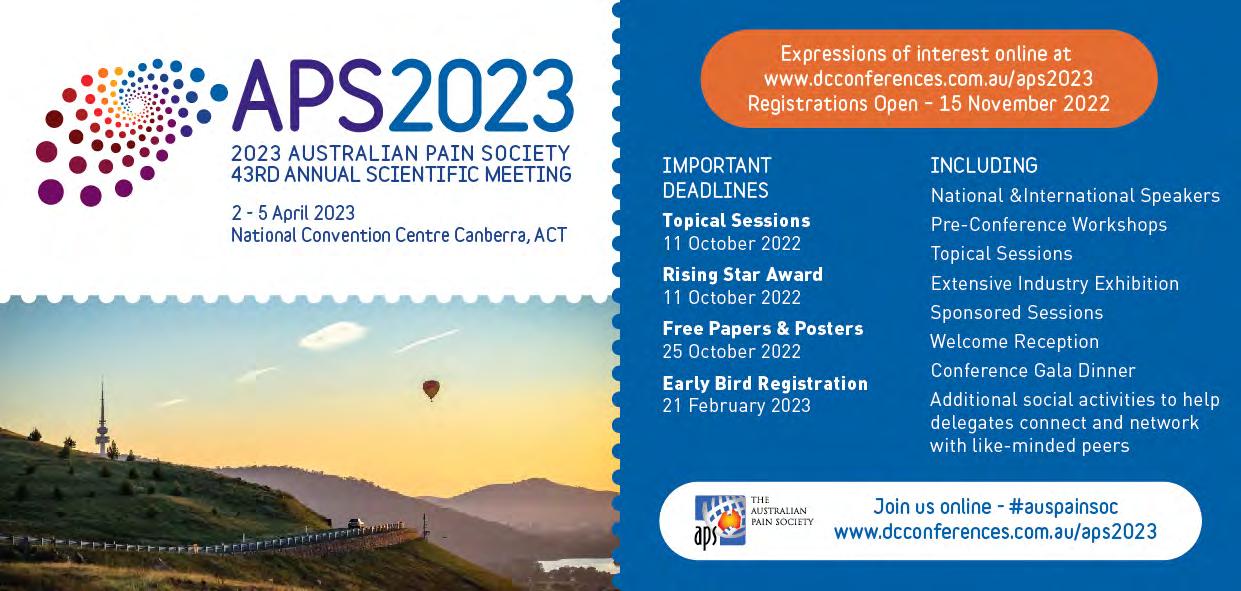
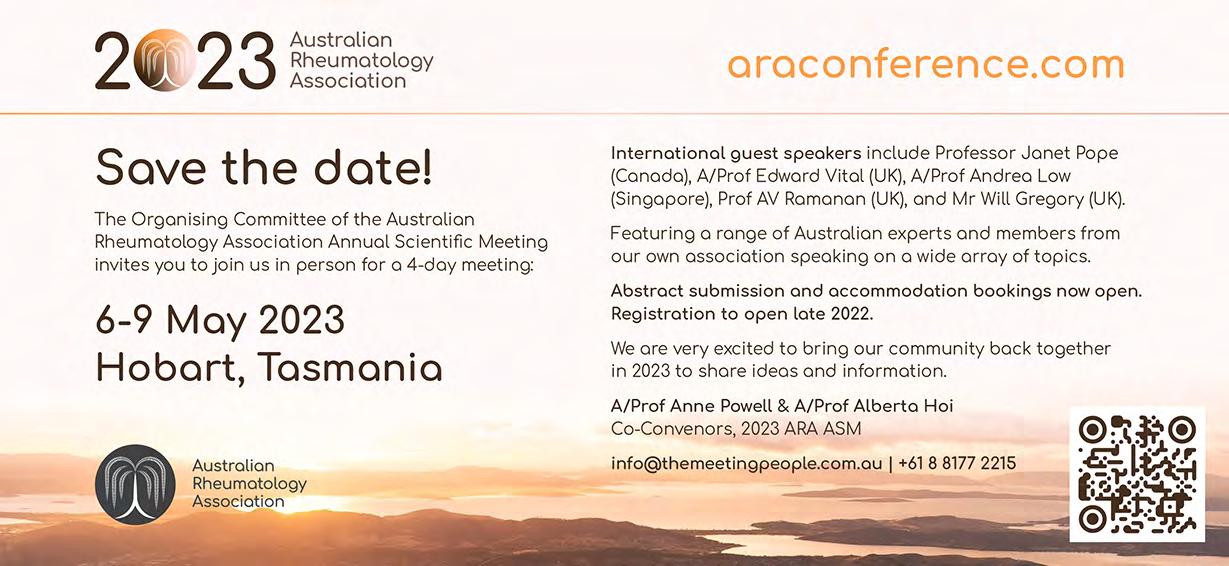


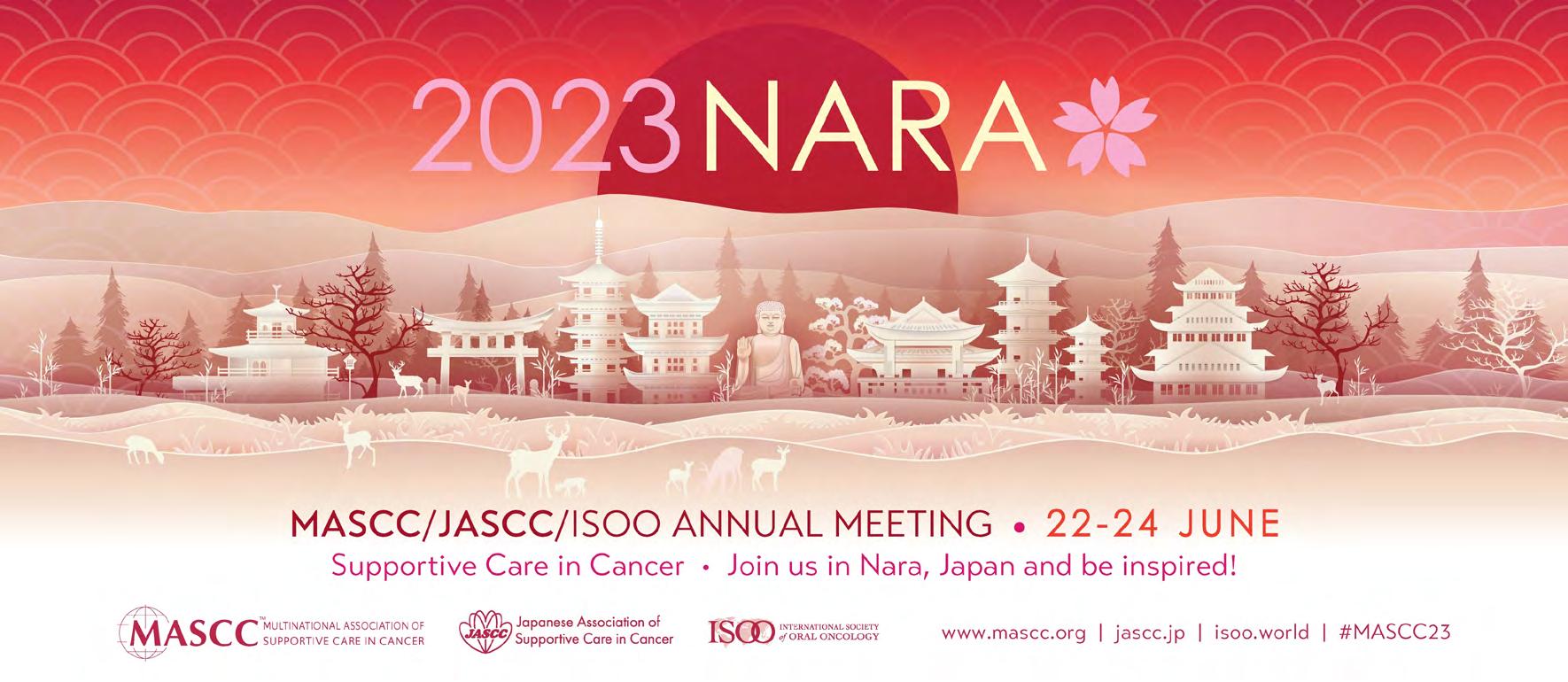
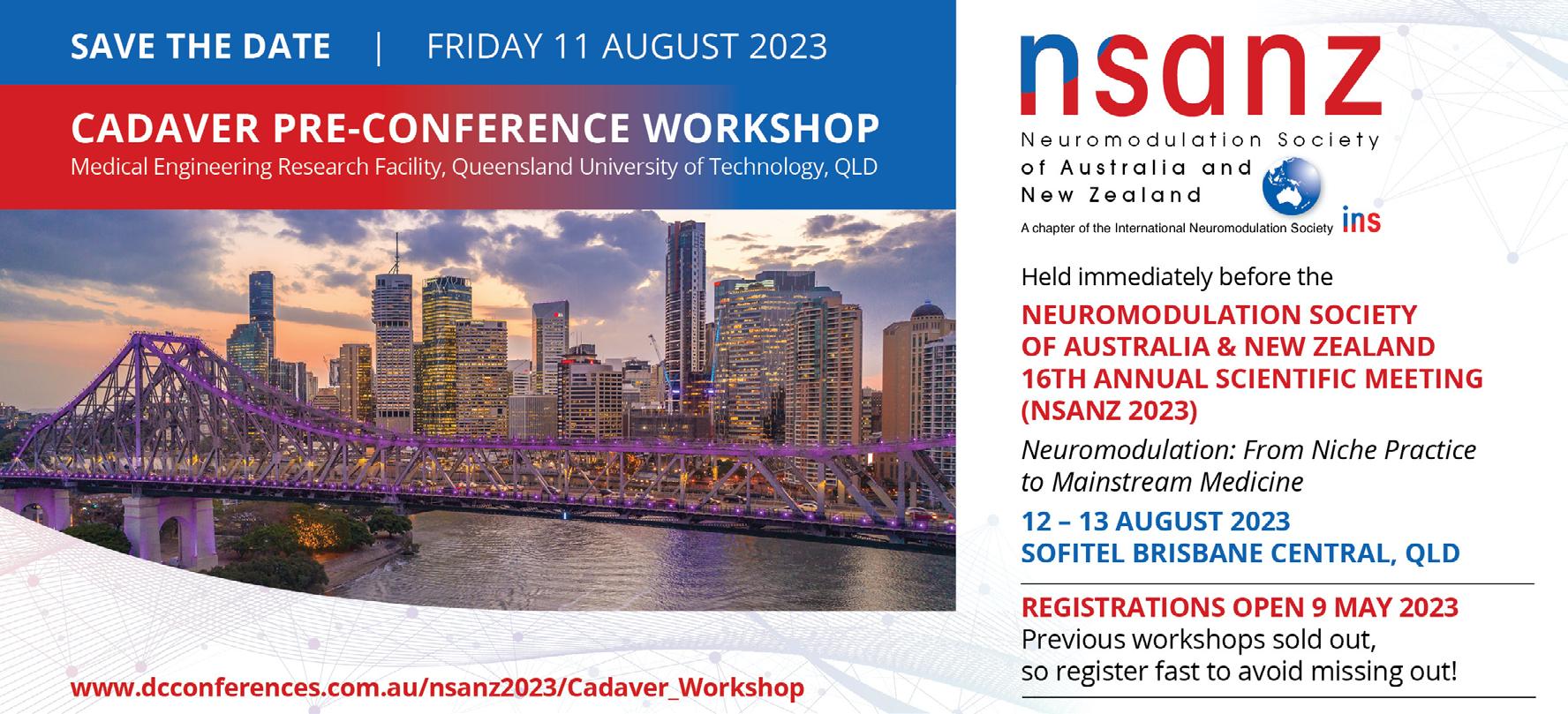
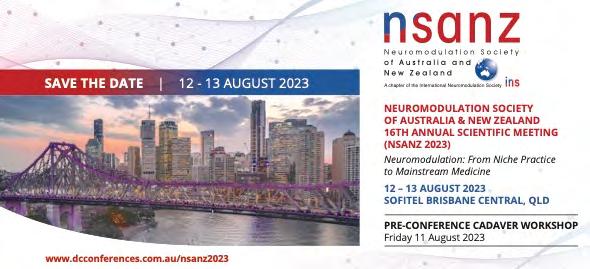

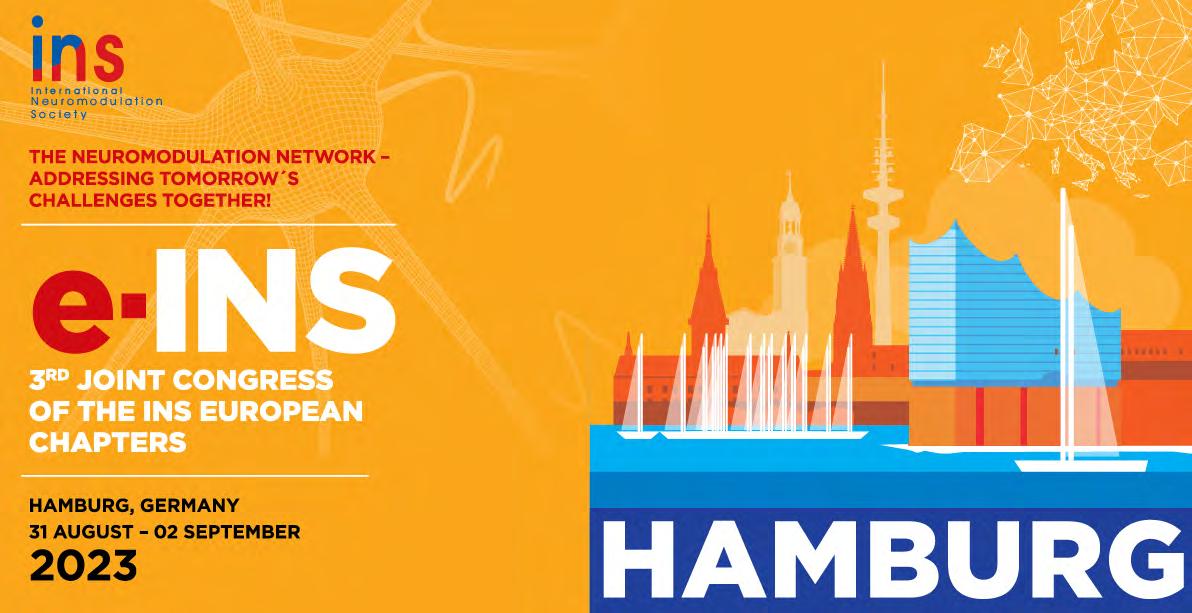
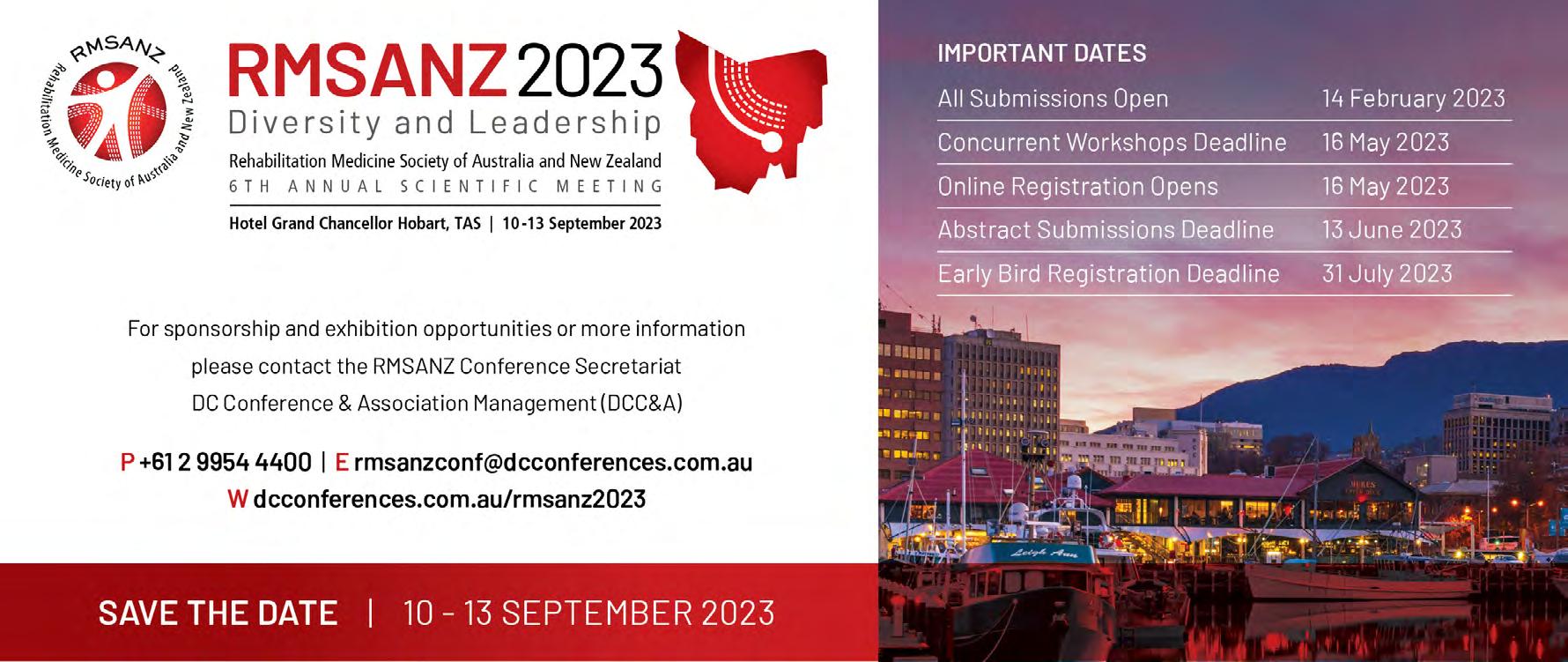
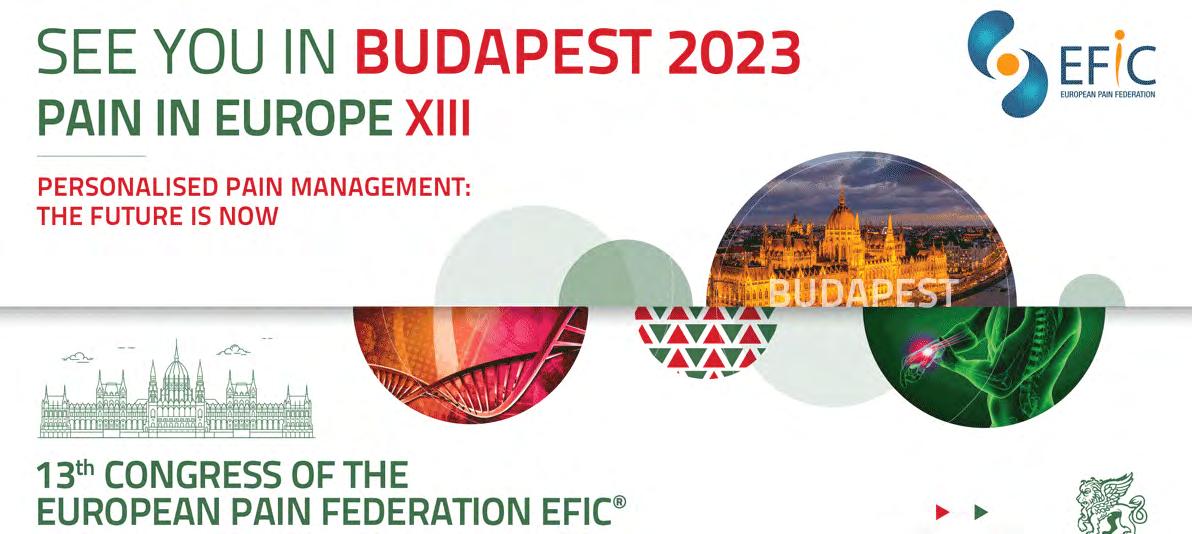
> Australia’s first endometriosis and pelvic pain clinics now available nationally: https://www. health.gov.au/ministers/the-hon-ged-kearneymp/media/australias-first-endometriosisand-pelvic-pain-clinics-now-availablenationally?language=en
Other items of interest for our members:
> Latest opioid data from the Australian Bureau of Statistics: Opioid induced deaths in Australia. https://www.abs.gov.au/articles/ opioid-induced-deaths-australia
> Australia’s annual overdose report 2019 from the Pennington institute: http://www. penington.org.au/australias-annual-overdosereport-2019/
> The Third Australian Atlas of Healthcare Variation: This series explores how healthcare use in Australia varies depending on where people live. It investigates reasons for variation that may be unwarranted, and provides specific achievable actions to reduce unwarranted variation. https://www.safetyandquality.gov.au/atlas
> Painaustralia eNewsletter latest issue, available online at http://www.painaustralia. org.au/media/enews
> ePPOC: electronic Persistent Pain Outcomes Collaboration: The electronic Persistent Pain Outcomes Collaboration (ePPOC) is an Australasian initiative that aims to improve the quality of care and outcomes for people who experience chronic pain. For more information about ePPOC, refer to the website: http://ahsri. uow.edu.au/eppoc/index.html
> PainHEALTH website: painHEALTH‘s aim is to help health consumers with musculoskeletal pain access reliable, evidence-based information and tips to assist in the comanagement of musculoskeletal pain. painHEALTH is an initiative of the Department of Health, Western Australia. http:// painhealth.csse.uwa.edu.au/
> Stanford University: CHOIR Collaborative Health Outcomes Information Registry https:// choir.stanford.edu/
> Opioid Podcasts for GPs: These podcasts are produced by David Outridge GP, and FAChAM Trainee as a project under the auspices of Dr Steven Kelly Staff Specialist in Addiction Medicine, Kullaroo Clinic Gosford. A 20 week series from the Hunter Postgraduate Medical Institute (University of Newcastle) : http:// www.gptraining.com.au/recent-podcasts
> Airing Pain: Pain resources via an online radio show produced by Pain Concern, a UK registered Charity: http://painconcern.org.uk/ airing-pain/
> Indigenous Resources: New webpage on the APS website aggregating Indigenous resources: https://www.apsoc.org.au/ Indigenous-Resources
> Opioids: Communications videos: https://www. nps.org.au/opioids-communication-videos
TGA
> Codeine information hub: https://www.tga.gov. au/news/news/codeine-information-hub
NSW Agency for Clinical Innovation resources:
> Brainman and Pain Tool Kit translations, SEP15: http://www.aci.health.nsw.gov.au/ chronic-pain/translated-resources
> Pain Management Resources: https:// aci.health.nsw.gov.au/networks/painmanagement/resources
> Quicksteps to Manage Chronic Pain in Primary Care: http://www.aci.health.nsw.gov.au/ chronic-pain/health-professionals/quick-stepsto-manage-chronic-pain-in-primary-care
> Built into Quicksteps: “How to de-prescribe and wean opioids in general practice”: http:// www.aci.health.nsw.gov.au/chronic-pain/healthprofessionals/quick-steps-to-manage-chronicpain-in-primary-care/how_to_de-prescribe_and_ wean_opioids_in_general_practice
> A list of helpful apps for consumers and clinicians now available at: http://www.aci. health.nsw.gov.au/chronic-pain/healthprofessionals/management-of-chronic-pain
> Chronic Pain in the ED: https://www.aci. health.nsw.gov.au/networks/eci/clinical/ clinical-resources/clinical-tools/painmanagement/chronic-pain-in-the-ed
Ensure you renew to receive the member’s discount for the conference!
Thank you for your continued support and membership of the APS.
Please note:
1. We understand that circumstances change, so each year we ask you to select your appropriate level of membership.
2. This system of self-reporting subscription levels was implemented in 2009 for the benefit and fairness of all members.
3. There has been a small increase applied to the 2023 membership fees.
Please refer to the rates below for your 2023 membership fee:
a. Regular A $120 (was $110)
b. Regular B $230 (was $205)
c. Regular C $370 (was $310)
d. Retired $65 Concessional Rate
e. Student $65 Concessional Rate
Before renewing, please ensure you review and update your member profile online.
Payments can be made by Credit Card, BPAY, or Cheque.
Did you know that the Australian Pain Society is a registered charity with ACNC? Your donation will help the Society to promote the prevention and control of diseases in human beings associated with pain.
All donations of $2 or more to APS are tax-deductible.
The Board of The Australian Pain Society would like to sincerely thank all the members who responded to our recent Membership Survey.
We are grateful for the responses and look forward to sharing some of the survey insights in our next newsletter edition.
Prize Winners:
Our two lucky prize winners and their prizes are: A Gala Dinner Ticket for the Canberra conference:
1. Belinda Mikaelian
2. Fernando Tinoco
New Members as at 21 March 2023:
Dr Mazyar Danesh Pain Medicine Physician
A/Prof Elizabeth Devonshire Education
Ms Debbie Douglas Physiotherapy
Dr Chloe Edwards Anaesthesia
Miss Sally Evans Pharmacy
Ms Sydney Harris Science Research
Dr Jennifer Herrick Anaesthesia
Dr Anthony Htin Pain Medicine Physician
Mr Jacob Johannessen Physiotherapy
Dr Patrick Johnson Psychiatry
Ms Shirdhya Joypaul Pharmacy
Mr Parivesh Kumar Physiotherapy
Miss Crystal Li Science Research
Ms Corinne Longhurst Physiotherapy
Dr Sarasa Mohammadi Pharmacology
Ms Jen Norton Physiotherapy
Mr Julian Peiser-Oliver Pharmacology
Dr Jason Ray Pain Medicine Physician
Dr David Sainsbury Pain Medicine Physician
Ms Roxie Swart Physiotherapy
Dr Nguyen Hong Nhu Y Trinh Anaesthesia
Mr Sam Williams Science Research
23-26 March 2023
New Zealand Pain Society
NZPS 2023 “Designing a Better Future”
The Cordis Hotel, Auckland, NZ
https://www.nzps2023.nz/
2-5 April 2023
Australian Pain Society
APS 2023 43rd Annual Scientific Meeting
In the IASP Global Year for Integrative Pain Care
National Convention Centre, Canberra, ACT
https://www.dcconferences.com.au/aps2023/
5 May 2023
Australian and New Zealand College of Anaesthetists & Faculty of Pain Medicine
2023 FPM Symposium - Moving Forward
International Convention Centre (ICC), Sydney, NSW
https://www.anzca.edu.au/events-courses/ events/major-events/fpm-national-events/2023faculty-of-pain-medicine-symposium-(1)
5-9 May 2023
Australian and New Zealand College of Anaesthetists (ANZCA)
ANZCA 2023 Annual Scientific Meeting - Be connected
International Convention Centre (ICC), Sydney, NSW
https://www.anzca.edu.au/events-courses/ events/major-events/2023-anzca-asm
6-7 May 2023
Exercise & Sports Science Australia (ESSA)
2023 ESSA - Innovation & Practice Forum
Novotel Sunshine Coast Resort, Sunshine Coast Twin Waters, QLD
https://www.essaforum.com.au/
6-9 May 2023
Australian Rheumatology Association (ARA) ARA ASM 2023
Hotel Grand Chancellor, Hobart, TAS
https://www.araconference.com/
12 May 2023
EmpowerRehab
Pain Management in Practice
Online Workshop
https://empowerrehab.com/workshops/
21-23 June 2023
Occupational Therapy Australia (OTA)
OTAUS2023 - 30th National Conference & Exhibition
Cairns Convention Centre, Cairns, QLD
https://www.otausevents.com.au/otaus2023/
22 June 2023
EmpowerRehab
Pain Management in Practice
Jasper Hotel, Melbourne, VIC
https://empowerrehab.com/workshops/
22-24 June 2023
MASCC/JASCC/ISOO
2023 NARA
Nara Prefectural Convention Centre, Nara, Japan
https://mascc.org/annualmeeting2023/
11 August 2023
Neuromodulation Society of Australia and New Zealand (NSANZ)
NSZANZ Pre-Conference Cadaver
Workshop 2023
Sofitel Brisbane Central, Brisbane, QLD
https://www.dcconferences.com.au/nsanz2023/ Cadaver_Workshop
11-13 August 2023
Neuromodulation Society of Australia and New Zealand
NSANZ 2023 16th Annual Scientific Meeting
- Neuromodulation: From Niche Practice to Mainstream Medicine
Sofitel Brisbane Central, Brisbane, QLD
http://www.dcconferences.com.au/nsanz2023
31 August-2 September 2023
Interational Neuromodulation Society (INS)
3rd Joint Congress of the INS European Chapters
- Addressing Tomorrow’s Challenges Together!
Congress Centre Hamburg, Germany
https://e-ins.org/
7-9 September 2023
International Association for the Study of Pain (IASP)
NeuPSIG 2023 International Congress on Neurpathic Pain
The Lisbon Congress Centre, Lisbon, Portugal
https://neupsig.joyn-us.app/
10-13 September 2023
Rehabilitation Medicine Society of Australia & New Zealand (RMSANZ)
RMSANZ 2023 6th Annual Scientific MeetingDiversity and Leadership
Hotel Grand Chancellor, Hobart, TAS
https://www.dcconferences.com.au/rmsanz2023/ home
20-22 September 2023
European Pain Federation (EFIC)
EFIC 13th Congress - Personalised Pain Management: The future is now
HUNGEXPO Exhibition Centre, Budapest, Hungary
https://europeanpainfederation.eu/efic2023/
1-4 October 2023
International Association for the Study of Pain (IASP)
The International Symposium on Pediatric Pain 2023 (ISPP 2023)
Halifax Convention Centre, Halifax, Canada
https://ispp.joyn-us.app/
11 October 2023
EmpowerRehab
Pain Management in Practice
Online Workshop
https://empowerrehab.com/workshops/
26 October 2023
EmpowerRehab
Pain Management in Practice
Adina Hotel Surry Hills, Sydney, NSW
https://empowerrehab.com/workshops/
14 November 2023
National Trauma Network
NTS23 “Towards Excellence”
Te Papa Tongarewa, Wellington, NZ
https://www.traumasymposium.nz/
23 November 2023
EmpowerRehab
Pain Management in Practice
George Williams Hotel, Brisbane
https://empowerrehab.com/workshops/
Vision:
All people will have optimal pain management throughout life.
Purpose:
The Australian Pain Society is a multidisciplinary association whose purpose is to advance pain management through education, research, and advocacy for transformational improvements in clinical care.
Priorities:
In order to achieve our purpose, the Australian Pain Society will provide:
> Membership
> Research
> Education
> Services and resources
> Good governance and operations
> Advocacy
President:
Mrs Joyce McSwan
Gold Coast Primary Health Network
Persistent Pain Program, QLD and PainWISE
Tel: 0412 327 795 Fax: 07 3539 9801
President-Elect:
Ms Bernadette Smith
Psychology Plus
South Burnie TAS
Tel: 03 6431 9959 Fax: 03 6431 9950
Secretary:
Mrs Dinah Spratt
Physiotas Physiotherapy
Shearwater TAS 7307
Tel: 03 6428 7500 Fax: 03 6424 7811
Treasurer:
Dr Laura Prendergast
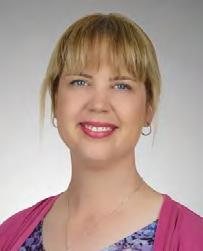

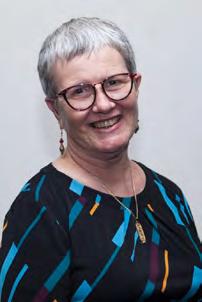
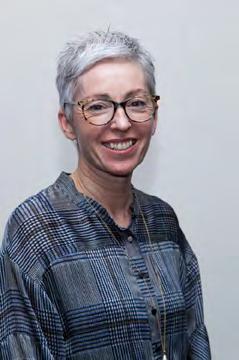

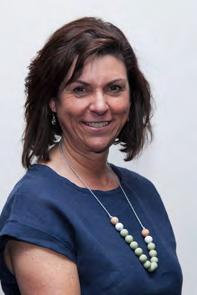
Pain Service, Northern Health Broadmeadows VIC 3047
Tel: 03 8345 5166 Fax: N/A
Work days Mon & Thu
ACT Director:
Dr Andrew Watson


Calvary Hospital
Canberra ACT 2617
Tel: 02 6201 6352 Fax: N/A
NSW Director:
Mr Connor Gleadhill
University of Newcastle, Hunter New England Population Health, Newcastle Sports Medicine
Newcastle NSW 2308
Tel: 0405 203 661 Fax: 02 4924 6022
NT Director:
Adjunct A/Prof Cindy Wall

Clinical Psychology Assessment & Consultancy
Fannie Bay NT 0820
Tel: 0488 993 210 Fax: 08 6266 3777
QLD Director:
Mrs Karalyn Huxhagen
KH Pharmacy Consulting

Mackay QLD 4740
Tel: 0418 185 972 Fax: 07 4805 6155
SA Director:
Ms Heather Gray
Royal Adelaide Hospital
Adelaide SA 5000
Email: heather.gray@sa.gov.au
TAS Director:
Mr Sinan Tejani
InBalance Physiotherapy

Launceston TAS 7250
Tel: 0469 967 841 Fax: N/A
VIC Director:
Dr Esther Dube

Austin Health
Heidelberg VIC 3084
Tel: 03 9989 1676 Fax: N/A
WA Director:
Ms Jacintha Bell
Lifeworks Occupational Therapy
Subiaco WA 6008
Tel: 0451 178 880 Fax: 08 6323 3329
Immediate Past President:
Ms Trudy Maunsell
Acute Pain Service
Princess Alexandra Hospital
Woolloongabba QLD 4102
Tel: 07 3176 5547 Fax: 07 3176 5102
SPC Chair:
Professor Kevin Keay


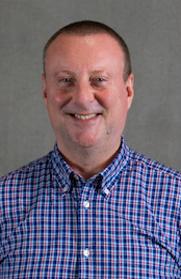
Department of Anatomy
University of Sydney
Camperdown NSW 2006
Tel: 02 9351 4132 Fax: 02 9351 2817
IASP Liaison:
Professor Fiona Blyth AM

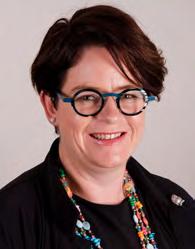
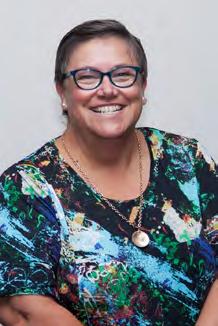
Sydney School of Public Health
Faculty of Medicine and Health
University of Sydney
Camperdown NSW 2006
Email: fiona.blyth@sydney.edu.au
Communications Coordinator:
Mrs Joyce McSwan
Gold Coast Primary Health Network
Persistent Pain Program, QLD and PainWISE
Tel: 0412 327 795 Fax: 07 3539 9801
Newsletter Editor:
Dr Lincoln Tracy
School of Public Health and Preventive Medicine
Monash University
Melbourne VIC 3004
Tel: 03 9903 0288
Newsletter Assistant Editor:
Dr Joanne Harmon
School of Clinical and Health Sciences
University of South Australia
Adelaide SA 5000
Tel: 08 8302 1442
Scholarship/Grant Selection Subcommittee Chair:

Dr Michael Farrell
Retired VIC Secretariat:
DC Conference & Association
Management Pty Ltd
PO Box 637
North Sydney, NSW 2059
Tel: 02 9016 4343
Email: aps@apsoc.org.au
Website: apsoc.org.au
